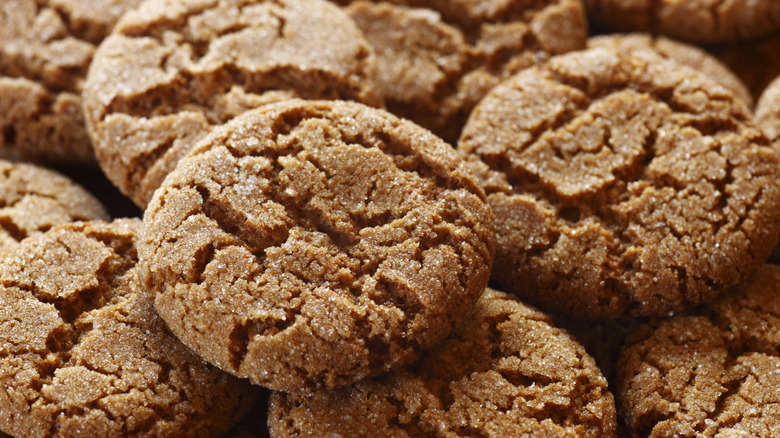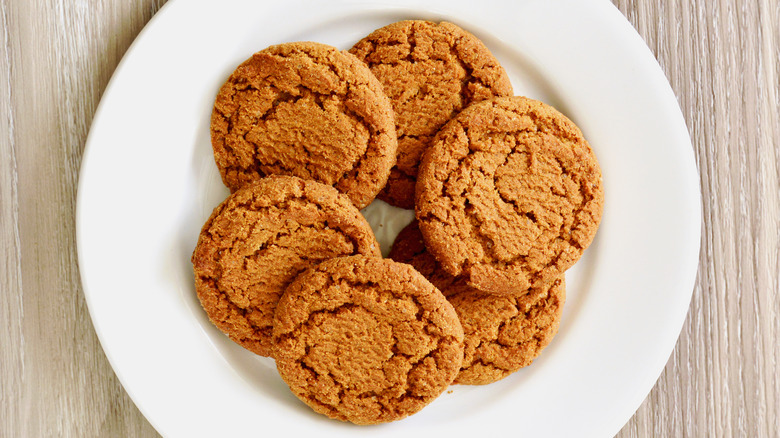The Historical Connection Between Gingersnap Cookies And Muster Day
As far as culinary artifacts go, gingersnap cookies have a long and illustrious history in American tradition. Even before the United States declared its independence, early incarnations of the gingersnap were being served at colonial settlements, like Williamsburg's special ginger cakes. Not to be confused with its elaborate cut-out cousin gingerbread, gingersnaps are famed for their crackling crunch and simplistic, round shape. While they share a similar recipe to gingerbread — i.e., one that's rich in spices and molasses — gingersnaps are baked for longer to create that distinctive crisp texture.
Brought over by European immigrants, the earliest forms of gingersnaps shared an identity with the German cookie lebkuchen. In fact, their name further solidifies the German connection, as gingersnap was adapted from the German word "snappen," or "to seize quickly." They were made primarily of butter, molasses, and flour. Why molasses? It was the cheap byproduct of both the rum and sugar refinement process, making it the sweetener of choice for Colonial bakers. Unsurprisingly, the well-spiced cookie would endure past the Revolution and become associated with new American cultural rites, like German-style Christmas celebrations and Muster Day.
While gingersnaps and Christmas seem like natural companions, gingersnaps and Muster Day — alternately known as Militia Day — make a stranger partnership. But what exactly is Muster Day? And why should the patriotic holiday bring to mind gingersnaps?
A sweet way to celebrate Muster Day
Following the Revolutionary War, militias held an important role as a protective force for the federal government to enforce the laws of the land in the far-flung towns of the United States. In order to boost numbers for local enlistment, a law was enacted in 1792 requiring every white male between the age of 18 and 45 to enlist in the local militia. Accompanying this annual practice were town-wide celebrations, complete with military training sessions where rum and, yes, gingersnaps were offered as refreshments to the brave men.
This patriotic day became known as Muster Day, where locals would "muster" up the courage to enlist in the militia. Muster Day continued to be a popular celebration all the way up to the Civil War, with the gingersnap remaining as a sweet reward for doing your civic duty. Today, militias have essentially been replaced by the National Guard, and laws forcing abled-bodied individuals to enlist in the military haven't been enforced since 1973. Still, gingersnaps endure as a treat commonly found in American homes, even if it isn't served at rah-rah military enlistment parties.
The next time you indulge in the spicy crispness of a gingersnap cookie, you can appreciate its part in encouraging our ancestors to protect the laws of our burgeoning nation.

